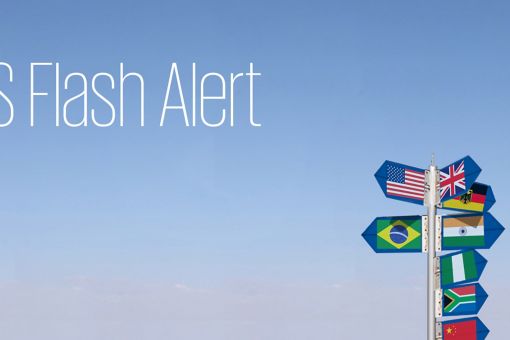Kenya – Tax Relief Measures to Help Taxpayers Cope with COVID-19 Crisis
Kenya–Tax Relief Measures to Cope w/ COVID-19 Crisis
On 25 March 2020, the president of the Republic of Kenya outlined the tax interventions the government intends to make to “cushion” the country against the economic effects of the COVID-19. These measures are proposals only at this point and include a 100-percent tax relief for low-income-earning persons, a reduction in the top Pay-As-You-Earn (PAYE) rate, and other changes such as cash transfers, credit relief, lower VAT, and a corporate tax cut.

The coronavirus (COVID-19) presents an alarming health and economic crisis for Kenya and the world. Governments and businesses are responding to the risks and uncertainties arising from the virus in various ways on a daily basis (and oftentimes more frequently than daily).
On 25 March 2020, the president of the Republic of Kenya outlined the tax interventions the government intends to make to “cushion” the country against the economic effects of the COVID-19.1 These measures are proposals only at this point. We highlight some of the key proposals affecting individuals and their employers in this GMS Flash Alert.
WHY THIS MATTERS
This package of proposals put forward by Kenya’s government offers tax reductions, waivers, and deadline delays for certain tax payments and compliance obligations and, as such, generally gives taxpayers – especially those who are most vulnerable and economically disadvantaged – some very welcome breathing room to preserve their cash-flow and take additional time to organise their tax affairs in these trying times.
100-Percent Tax Relief for “Low Income Earners”
The government has proposed a 100-percent tax relief for persons earning gross monthly income of up to KES 24,000. This will generally affect “low income earners” and the proposal will channel additional disposable income to this group. The additional income for a person earning a monthly income KES 24,000 is estimated at approximately KES 1,700 per month.
Reduction of Highest PAYE Band
The government has also proposed to reduce the top Pay-As-You-Earn (PAYE) rate from 30 percent to 25 percent. This incentive is expected to align with the 100-percent tax relief for low income earners, allowing the government to channel additional resources to cushion the affected individuals from the impact of the virus.
It is not clear however from the statement whether persons earning between KES 24,000 and the top tax rate threshold of KES 47,059 will get the tax relief.
Other Changes Proposed: Cash Transfers, Credit Relief, Lower VAT, Corporate Tax Cut
Apart from the tax changes, the President also proposed several other measures to help support businesses and the general public. These include:
- Appropriation of KES 10 billion through cash transfers to the vulnerable members of society;
- Temporary suspension of listing with credit reference bureaux for persons who default on their loan obligations with effect from 1 April 2020;
- Disbursement of KES 1 billion for the recruitment of additional medical personnel;
- The reduction of the standard VAT rate from 16 percent to 14 percent (effective 1 April 2020); and
- A reduction of the resident corporate income tax from 30 percent to 25 percent.
Next Steps for Proposals
Under the Constitution of Kenya, the president’s proposals can only be implemented after obtaining approval from the National Assembly through the deliberation and approval of a relevant bill.
The KPMG International member firm in Kenya anticipates that the National Treasury will draft the appropriate recommendations to be included in an omnibus bill to be presented to the National Assembly for approval and subsequent assent by the president before they take effect. Given the urgency of the matter at hand, we expect that the enactment of the relevant legislation will be expedited.
FOOTNOTE
1 For the President’s 25 March address to the nation proposing the measures, click here.
KES 1 = EUR 0.009 | KES 1 = USD 0.0095 | KES 1 = GBP 0.0076 | KES 1 = INR 0727
RELATED LINKS
The information contained in this newsletter was submitted by the KPMG International member firm in Kenya.
SUBSCRIBE
To subscribe to GMS Flash Alert, fill out the subscription form.
© 2025 KPMG Kenya, a registered partnership and a member firm of the KPMG global organization of independent member firms affiliated with KPMG International Limited, a private English company limited by guarantee. All rights reserved. For more detail about the structure of the KPMG global organization please visit https://kpmg.com/governance.
GMS Flash Alert is a Global Mobility Services publication of the KPMG LLP Washington National Tax practice. The KPMG name and logo are trademarks used under license by the independent member firms of the KPMG global organization. KPMG International Limited is a private English company limited by guarantee and does not provide services to clients. No member firm has any authority to obligate or bind KPMG International or any other member firm vis-à-vis third parties, nor does KPMG International have any such authority to obligate or bind any member firm. The information contained herein is of a general nature and is not intended to address the circumstances of any particular individual or entity. Although we endeavor to provide accurate and timely information, there can be no guarantee that such information is accurate as of the date it is received or that it will continue to be accurate in the future. No one should act on such information without appropriate professional advice after a thorough examination of the particular situation.
